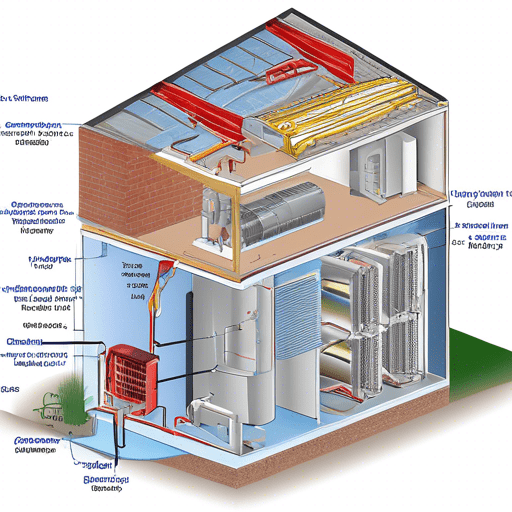California offers the ideal environment and area for relaxed-up living and homes that obscure the lines between inside and out.

As the world advances toward a more sustainable future, innovative technologies like ground-source heat pumps (GSHP) are emerging as key players in the realm of decarbonization. This blog post explores the promising trajectory of ground-source heat pumps, shedding light on how MEP (Mechanical, Electrical, and Plumbing) design and HVAC design can play pivotal roles in optimizing their performance for a greener, more sustainable built environment.
Ground-source heat pumps, also known as geothermal heat pumps, capitalize on the Earth’s consistent underground temperature to provide efficient heating and cooling. Unlike traditional heating and cooling systems, GSHPs have the potential to drastically reduce carbon emissions, making them a cornerstone in the quest for decarbonization.
MEP design holds the key to unlocking the full potential of ground-source heat pumps. By strategically integrating these systems within the broader MEP framework, engineers can ensure optimal efficiency. This involves meticulous planning of the distribution systems, sizing components accurately, and aligning the entire MEP infrastructure to complement the capabilities of GSHPs.
The future of ground-source heat pumps lies in their integration with other renewable energy technologies. MEP engineers are exploring synergies with solar panels, wind turbines, and energy storage systems to create comprehensive and sustainable energy solutions. This approach not only enhances the overall performance of GSHPs but also contributes to a more resilient and self-sufficient energy ecosystem.
MEP engineering plays a crucial role in the design and optimization of geothermal boreholes—the foundational component of ground-source heat pump systems. Engineers must carefully design the borehole layout, depth, and configuration to maximize heat exchange efficiency. Additionally, advanced simulation tools used in MEP design can model and predict the long-term performance of these boreholes, ensuring they meet the demands of decarbonized buildings.
The future of GSHPs is intertwined with smart HVAC design. By incorporating intelligent controls, predictive algorithms, and machine learning, MEP engineers can enhance the operational efficiency of ground-source heat pump. Smart HVAC systems can adapt to dynamic environmental conditions, optimizing energy consumption and further reducing the carbon footprint of buildings.
While the future of ground-source heat pumps is promising, addressing implementation challenges is crucial. MEP engineers are at the forefront of developing solutions for installation complexities, system maintenance, and cost-effectiveness. Innovations in materials and construction methodologies driven by MEP design will play a significant role in overcoming these challenges.
At InnoDez, we recognize the transformative potential of ground-source heat pumps in achieving decarbonization goals. Our MEP engineers leverage cutting-edge technologies and adopt a holistic approach to integrate GSHPs seamlessly into building designs. By combining expertise in MEP design with a commitment to sustainability, InnoDez is actively contributing to the future of GSHPs and sustainable building practices.
The future of ground-source heat pump is bright, and at InnoDez, we are dedicated to shaping this future. As a leading MEP engineering firm, we are committed to providing innovative solutions that contribute to the decarbonization of buildings. Contact us today to learn more about how InnoDez can be your partner in creating sustainable, efficient, and environmentally friendly buildings.
About Author
InnoDez